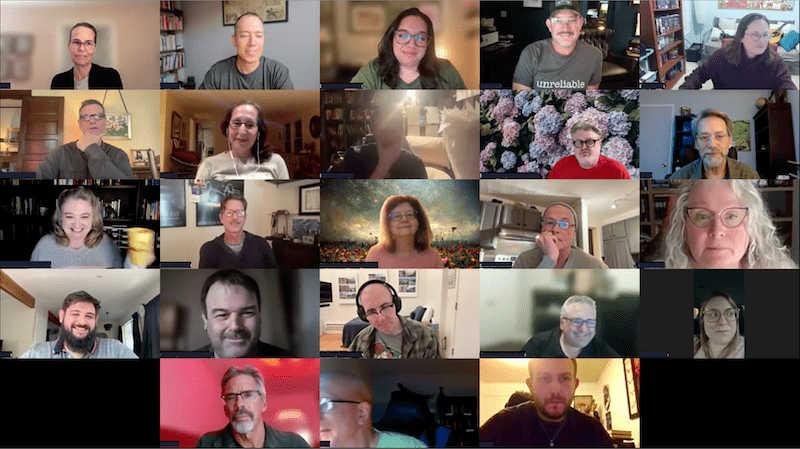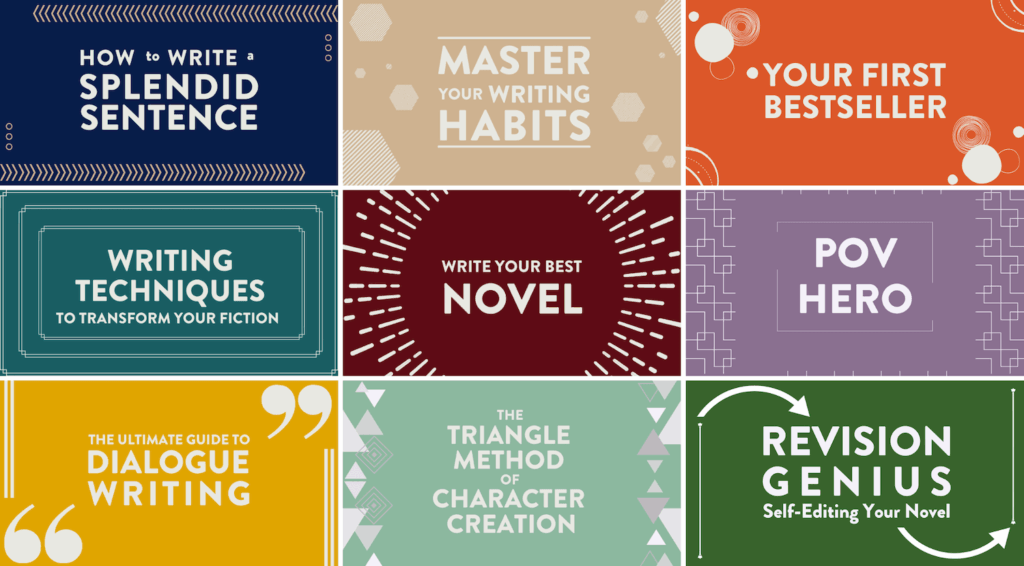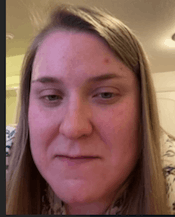
You’re One Breakthrough Away
Right now, there are authors making six figures from their writing. Authors with half your talent, a fraction of your ideas, and nowhere near your dedication.
The difference isn’t luck. It isn’t connections. It isn’t even raw ability.
It’s knowing exactly what to write, when to write it, and how to position it so readers can’t put it down.

The Brutal Truth
You’ve probably tried it all:
- Writing courses that teach you grammar rules you already know
- Generic “write every day” advice that ignores your actual life
- Cookie-cutter plot formulas that make your work sound like everyone else’s
- Beta readers who give you contradictory feedback that leaves you more confused than before
Here’s what no one tells you: At some point you need a guide. You might have gone as far as you can on your own.
A guide that can steer you away from common mistakes and toward the best version of yourself and the best version of your book.

What If Everything Changed?
Imagine opening your laptop three months from now and seeing…
- A completed novel, with characters bursting forth from the page
Imagine sitting down to write and feeling…
- That you’re confident about what you’ll write today, because of what you’ve learned
This isn’t a pipe dream. This is what will happen when you commit to Bookfox Lab and soak in all the wisdom and guidance from accomplished writers and editors.
Bookfox Lab Offers
One-on-One Coaching
These mentors were once in your shoes — unpublished, staring at a blank page — and now they’ve sold NYT bestsellers, won prizes, and worked for elite publishers.
These mentors will guide you to shore up your weaknesses and to capitalize on your strengths.
They can guide you through the thicket of the most complex plot, and the bewildering array of literary agents and publishers.
They’ll meet with you twice a month over Zoom.
Weekly Feedback
You need personalized feedback on your writing, rather than generalized principles.
Your writing coach will help you quickly learn from your mistakes and correct them.
We’re not talking about tense and grammar. We’re talking about developmental advice — how to write a story so it makes the reader weep or laugh or leap with excitement.
You’ll get weekly feedback over email (comments in the margins and a feedback letter).
The Bookfox Method
After spending more than 20 years writing, speaking, and editing, John Matthew Fox has created a system to guide writers through the process of writing a successful book.
It’s a step-by-step process which isn’t too formulaic and provides lots of exceptions and genre-dependent advice.
This method is much more comprehensive than his Youtube and 10 writing courses in Bookfox Academy. It takes deep writing principles and makes them accessible and practical.
Build a Community
The program isn’t only designed for top-down instruction, but also to build connections between fellow writers.
The people in this private community will end up being your beta readers, your fans, your champions and your friends.
These relationships can extend beyond the formal cohort period, forming the professional networks that sustain long writing careers.
This is your chance to build a tribe.
Master the Linchpin Moments
As described in “The Linchpin Writer,” every novel has a number of key moments that can make or break the story.
Part of the Bookfox Method is identifying and learning how to write these moments so your reader is thrilled rather than disappointed.
By going deeper into the material with a guide, and through doing exercises and getting feedback, you’ll do justice to these pivotal scenes.
Publication Guidance
Once you write your book, your mentor can help you with how to move forward.
First, they can give advice specific to you and your book on whether you should pursue self-publication or traditional publishing.
Next, they can also help with query letters, synopsis, jacket copy, and marketing ideas.
The marketplace of books can be bewildering, but they can guide you through it.
Bookfox Method Philosophy
There are a lot of prescriptive courses and books which will teach you rigid systems and formulas. You’ll learn what to write on page 9 and what to write on page 31 and what to write on page 94.
These paint-by-numbers approaches treat every story like an assembly line product. They reduce the art of storytelling to mechanical templates that strip away your unique voice and vision.
Bookfox Method isn’t like that.

On the other hand, there are a lot of abstract teachers of writing. These people give high-minded advice that sounds good but lacks specificity and practicality.
But inspirational quotes, deep-sounding platitudes and vague wisdom don’t help you produce a novel. Abstract advice creates the illusion of learning without providing actionable tools.
Many writers spend years consuming beautiful but useless writing wisdom, attending workshops full of encouraging nods and empty feedback like “this has potential” or “keep working on it.” They leave feeling motivated but equipped with nothing practical to improve their actual pages.

Instead, the Bookfox Method offers practical advice with flexibility.
We believe great writing emerges from the intersection of solid craft knowledge and creative freedom. You need concrete skills AND the flexibility to deploy them in service of your unique vision. Think of us as teaching you to be a master chef, not a short-order cook following recipes.
You’ll learn concrete techniques and strategies, but as a series of options rather than a one-size-fits-all formula. There is never any “right” way to write your book. There are a number of very, very good ways, and we’ll show you examples and let you select. There are also lots of terrible ways, and we’ll show you those common mistakes.

Say Hello!
We have 28 lovely writers in the 2026 cohort, writing all sorts of novels and working in many different genres.

What Will You Learn?
1. Get advanced insight into Plotting. The Bookfox Method contains all the tools you need to craft your storyline, and it won’t be the same, tired cliche advice you’ve heard all over the internet. Yes, Freytag’s Pyramid and The Hero’s Journey is great, but that’s entry level knowledge. In Bookfox Lab we’ll drill down the core pieces of how different books are structured, and what are strategies and techniques you can use to hook the reader and keep their attention.
2. Focus on the Linchpin Moments. In every book there are pivotal make-or-break moments. You write them badly and readers will throw your book across the room. Write them well and you’ll have readers singing your praises with five-star reviews. In the Lab we methodically break down those moments in your book and help you to write them to their full potential.
3. You’ll Learn Nameable Writing Techniques. How do you make sure the reader feels emotion? How can you use Ticking Clocks well in your story? How should you handle a braided narrative? How can you shift between different POVs (and get the POV right?). These are all issues we cover and much, much, much more.
While teaching these techniques, we’ll offer:
- Multiple pathways: For every writing topic, we present 3-5 different proven approaches.
- Genre-agnostic methods: Our techniques work whether you’re writing literary fiction, fantasy, sci-fi, crime, romance, horror, dystopian, YA, historical fiction or thrillers.
- Exceptions to the Rule: There are always ways to break the rules and still make the reader happy.
4. Discover the Secrets of Famous Authors. We’ll read chapters from famous books and talk about how they handle plot, characters, and these writing techniques. Mentors will guide you through these discussions, and you’ll walk away filled with ideas for how to build your story.
Example of Bookfox Method
This is a video I did on Character Building. I try to avoid lessons you might have already heard, give lots of examples from a wide variety of books and movies, and mention exceptions to the rules. If you like the style and type of content in this video there’s a good chance the Bookfox Method is right for you.
Bookfox has appeared in:
Access to 230+ Videos
By signing up for Bookfox Lab, you also get access to Bookfox Academy, which includes more than 230+ videos in ten courses. This is in addition to the live instruction inside Bookfox Lab.


Who Will be Teaching?
In addition to myself, a team of three coaches will be giving feedback on your work, meeting with you one-on-one, and teaching the craft lessons.
Based on your genre and writing experience, you’ll be matched up with the coach that is right for you.
Between the three coaches, their credentials include:
- Novels on the New York Times and USA Today bestseller list
- Editorial positions at the leading literary journals in the country
- Coached clients who have published with the Big Five and sold 100,000+ copies of self-published novels
FAQs
Yes, you’ll get guidance wherever you are. We have special tracks for writers who are halfway through their novel or have completely finished their novel.
No, this program is customized to help you improve your skills, no matter whether you’re a fledgling writer or seasoned veteran.
We are currently focusing on fiction writers, mainly novelists with a few short story writers thrown in the mix.
No, we provide flexibility. The initial commitment is for three months, and after that point, it’s on a month-to-month basis.
Yes, look at the Revision Track below, which is designed for writers who have completed their book and now need guidance as they revise it.
Ideally, it’s best if you submit material from your work in progress. But you can also submit short stories or the exercises assigned in the craft chats. It’s up to you!
Most other programs have pre-recorded videos without feedback on your work.
We offer one-to-one coaching, and personalized feedback on a weekly basis, plus live craft talks as well. It’s very hands on and very time intensive, but it will absolutely transform your writing.
We’ve also brought on the best and most accomplished editors and authors we can find, and they are worth every penny.
Three Steps to Join the Program
Apply Using the Form Below
We’re not trying to gatekeeper with the application process. It doesn’t matter whether this is your first book or your fifth.
We want to learn more about you so we can pair you with the mentor that’s right for you.
We’re also looking for commitment — this isn’t a fair-weather program. You’ll have to buckle down and be ready to learn and write.
We’ll Contact You
We’ll want to know more about you, and to answer any questions you have.
We will probably want to see a writing sample so we can get to know your writing style better.
We’ll Invite You
If everything seems to be a great fit, we’ll invite you to join Bookfox Lab when the next cohort starts.
The next start date is April 13th, 2026.
The last cohort filled up and we had to turn writers away, so secure your spots early.

The Hidden Price of “Someday”
Why is it important for you to act now?
Well, you could keep on doing what you’re doing — cobbling together bits and pieces of advice from across the internet, but that’s probably not the best path forward.
While you’re muddling through the writing life, other writers are getting feedback, publishing their first novels and building their author platforms. They’re earning royalties while you’re still “getting ready to start.”
You also don’t want someone else to write something similar and beat you to market. Now is the time to act.

What Delay Costs You
You might feel shame about admitting that you’ve wanted to write a book for so long, but haven’t gotten to the finish line.
Maybe you read a published novel and think, “I could have written something better.”
Picture yourself five years from today. Will you be an established author with multiple published works, a growing fanbase, and the creative fulfillment you’ve always craved? Or will you still be that person with the “great book idea” who never quite got around to writing it?
The choice you make today determines which version of your future self you’ll become.
Pricing
First Draft
Best for writers in the process of writing their book.
– Get feedback on your writing every week
– 6 mentor meetings (twice a month)
– Learn from Craft Chats & courses
Pricing:
$3900
or 3 payments of $1300
Mid-Novel
Best for writers halfway through their novel.
– Developmental edit of what you have written
– 4 mentor meetings to discuss how to finish
– Six weeks of turning in new writing & getting feedback
Pricing:
$4999
Or 2 installments of $2499
Revision Pro
Best for writers who have finished their manuscript.
– Developmental edit of your manuscript
– 3 Mentor Meetings
– Re-read of up to 10k words
– Feedback on blurb, synopsis, and query
Pricing:
$4999
Or 2 installments of $2499
Invest in Your Writing

After your three months in the program, you may continue for $990 a month (no contract — you can step away at any time).
You may continue to work with that same mentor or switch to another mentor (your choice!).
Other programs, particularly from universities, can cost $35,000 – $50,000 a year, and you only get personalized feedback a few times a semester, so Bookfox Lab offers a tremendous value in terms of one-on-one attention.
Apply Now
The next cohort starts April 13th, 2026. To apply, fill out all the information below, and we’ll contact you.













